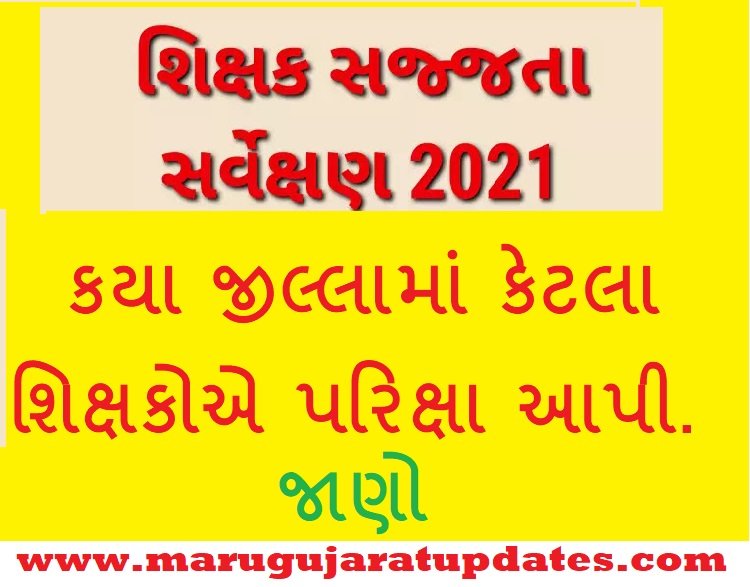Shikshak Sajjata Survey 2021 All Details
Shikshak Sajjata Survey 2021 : Teacher readiness is a very important factor for quality education. Also in NEP 2020 Emphasis is placed on teacher readiness for quality education For teachers for quality education Training programs are organized at the state or district level. All teachers under this.
Shikshak Sajjata Survey 2021
It is very important to provide educational help as per the need Every teacher’s education so that the teachers get the training and onsite support as per their need The need to know For that the teacher’s own teaching subjects, classroom behavior assessment. It is important to know how to understand new trends in education.
SIXAK SAJJATA SURVEY STUDY MATERIALS
Shikshak Sajjata Survey 2021 -The following points are taken into consideration regarding this survey.
- The survey will have a questionnaire (a questionnaire containing a total of 80 sections) as a survey device. Each
There will be four options for retrieval for the clause from which to select the appropriate retrieval. Details Appendix with this
- The survey will have the following five groups of devices.
a. Standard 1 to 5
b. Standard 6 to 8 Language-Social Science
c. Standard 6 to 8 Mathematics-Science
d. HTAT head teacher
e. CRC-BRC Coordinator
- The teacher, HTAT Principal and CRC-BRC Coordinator of the above five applicable departments To join the survey.
- Information based on the information available on the SAS portal about which subject the teacher teaches in which standard Will be analyzed. Teachers of Std. 1 to 5 and teachers of Std. 6 to 8 teach the subject themselves To respond only to the articles on that subject. E.g. Teachers of Std. 1 to 5 in Std. 6 to 5 Mathematics and Teaches English in standard 5. So he only had to respond to math and English subject clauses. Gujarati And not to respond to the environment. Teachers who are teaching in Std. 1-2 are doing Std To respond to 2 wise clauses. Similarly the language taught in Std. 6 to 8 as well as social The science teacher will have to respond to the language he is teaching. In no one standard with it If they are teaching a social science subject, they should also be given a copy of the social science subject.Will have to give. In short, the teaching of the subject mentioned in the SAS is to give the same response to the work being done.
- Every teacher should respond to the current trends, assessment and articles on holistic education in addition to that subject Will have to give.
-
Std. 6 to 8 Mathematics Science Teachers, HTAT Headmaster and CRC-BRC Coordinator of all 80 sections To respond.
-
A head teacher who does not have HTAT in any one section according to the subjects of his / her teaching work as per SAS data Will have to join.
-
In addition to 80 clauses, descriptive clauses are given in the survey questionnaire. Every teacher, HTAT principal and CRC
The BRC Co-ordinator may request any two of these descriptive clauses in approximately 200 words.Descriptive response is to be given.
- Curriculum, textbooks, content, study-teaching process, new trends etc. in the survey questionnaire
Matters are included.
- Since this survey is a census survey, all teachers are required to participate in this survey. Serious For teachers who are unable to attend the survey on time due to medical reasons like illness or maternity At other times and places the survey will be conducted by an alternative device (questionnaire).
-
Survey of the above five groups. On Will be held. The survey time will be two hours.











Educational psychologists apply theories of human development to understand individual learning and inform the instructional process. While interaction with teachrs and students in school settings is an important part of their work, it isn’t the only facet of the job. Learning is a lifelong endeavor. People don’t only learn at school, they learn at work, in social situations and even doing simple tasks like household chores or running errands. Psychologists working in this subfield examine how people learn in a variety of settings to identify approaches and strategies to make learning

